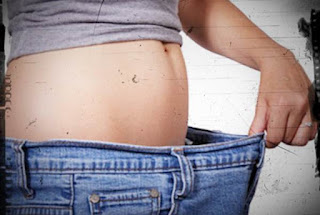Know The Signs And Symptoms Of Acne And Treating Those
Acne is an instigative condition of the skin, which is characterized by blackheads, pimples, and clogged pores. The sebaceous glands or oil glands are connected to the hair follicles and release a substance known as the sebum, which lubricates skin and hair. Normally, sebum travels up the hair follicles and out on to the skin. When the sebaceous glands produce too much oil then it will combines with the dead skin cells and the hair follicles become blocked and then inflamed. Most often acne affects the forehead, nose, chin, trunk, cheeks, and back.
Acne signs:
Most of the people think that acne is only a pimple. But the person who is suffering from acne may also have any of the followed blemishes:
Acne signs:
Most of the people think that acne is only a pimple. But the person who is suffering from acne may also have any of the followed blemishes:
• Whiteheads
• Blackheads
• Cysts
• Papules
• Pustules
• Nodules
Mostly acne appears on the face, but it can also appear on other parts of the body such as chest, shoulders, neck, upper arms, buttocks and back.
Acne Symptoms:
Acne may cause more than the blemishes. Most of the studies showed that the people who have acne may have:
• Low self-esteem: Acne makes the people to feel bad about themselves. Due to their acne, most of them do not want to be with their friends. They often miss work and school.
• Depression: People who have the acne may also suffer from more than the low self-esteem. Acne may lead to the medical condition called as depression.
• Permanent scars: People who get nodules and acne cysts often see the scars when acne clears. Treating the acne before nodules and cysts appear may prevent the scars.
• Dark spots on skin: When acne cures, these spots will appear. It may take some months or years to disappear those dark spots.
Acne Treatment:
Acne treatment will be aimed at reducing the production of sebum, helping skin to remove the dead cells, so they won't buildup, and stop bacteria from the accumulation.
• Wash your skin with a mild cleanser twice a day. Washing more often by using facial masks or scrubs can make the acne worse.
• Use the cosmetics and skin care products, which are free from oil. Look for the products, which say "non comedogenic" or "water based".
• You can try over-the-counter lotions that contain salicylic acid or benzoyl peroxide.
Drug Therapies:
• Topical: Usually topical formulations are the first acne treatment options. Your physician may also recommend topical medications to treat the acne. Most commonly used topical drugs include: Retinoid, Antibiotics, benzoyl peroxide.
• Oral: Sometimes doctors may recommend antibiotics either by alone or in addition to the topical medications for the moderate to severe acne.
Surgery and other methods:
These acne treatments can be helpful in improving the appearance of the skin, which is scared by acne. Minor scars can be reduced by chemical peeling. For more sever scarring, usage of dermabrasion will be helpful.
Article Source: Nancy P Shevell

Comments
Post a Comment
Thank You for visiting this post, and please:
1. Comment with wisdom and courtesy
2. Not entering the active link in the comment form
3. Commenting relevant to the topic of the article ..
4. Comment politely and ethically.
5. Let us be Bloggers who benefit each other.
6. I will try to respond to new comments as soon as possible.
7. Please comment with sentences and standard language.
Thank You.